This is part 4 of this 7 part series.
The series being:
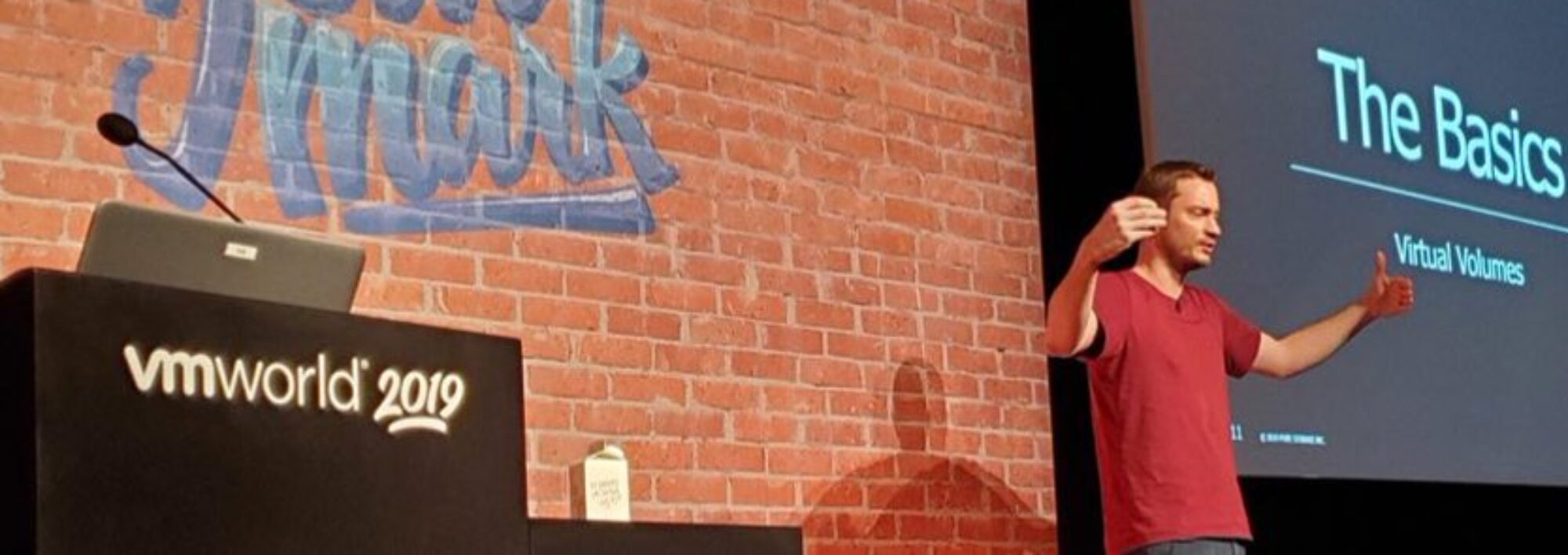
"Remember kids, the only difference between Science and screwing around is writing it down" -Alex Jason (made popular by Adam Savage)
This is part 4 of this 7 part series.
The series being:
This is part 3 of this 7 part series. The series being:
Continue reading “VMFS Snapshots and the FlashArray Part III: Why might a resignature fail?”
This is part 2 of this 7 part series. The series being:
This is a topic that I have looked into years ago, mainly in ESX 4.0 when they changed how it handled unresolved VMFS volumes by allowing it to be done selectively. I have had some customers working with array-based snapshots recently and have run into issues that prevent them from mounting them, or mounting them in the way they want. The problem is that I forgot most of the caveats from that testing because it was way before I started this blog. And as that quote popularized by Mythbusters’ Adam Savage says:
So let’s write it down to so I can’t forget it all again. That show is on its last season right now. I will certainly miss it! But anyways, I digress. Force mounting. Don’t do it and here is why.
Continue reading “VMFS Snapshots and the FlashArray Part II: Why not Force Mount?”
I have officially decided to “retire” my UNMAP script that uses direct REST calls to find before and after capacity changes for given volumes. I am only updating the one that uses the Pure Storage PowerShell SDK from this point on–using this is much more robust, not tied to direct API versions and greatly simplifies managing the data in the script.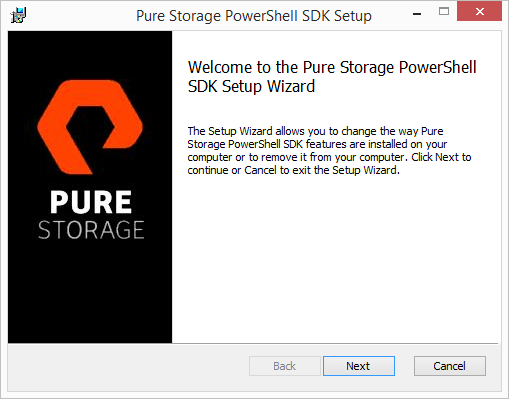
I have also created a second version for use in the VMware Fling called PowerActions. This allows the script to be executed from the vSphere Web Client.
Continue reading “FlashArray UNMAP Script with the Pure Storage PowerShell SDK and PowerActions”
Quick post here. An updated version of the Pure Storage FlashArray Management Pack for VMware vRealize Operations (vROPs) has been posted to the VMware Solutions Exchange. No new features, but a variety of internal improvements and bug fixes. Please download the latest version here:
I recommend updating your pak to this version.
Notable issues fixed in build 1.0.126 (v1.0.1):
For a functional review, please check out this post here:
https://www.codyhosterman.com/2015/06/the-pure-storage-flasharray-vrops-adapter-v1/
A question came up in a today at work that I answered and I thought it might be a good topic for a quick blog post:
How do you change your connection key for FlashArray replication?
The question misunderstands what the connection key actually is, so let me explain.
When you connect one FlashArray to another, you need three pieces of information:
Continue reading “Understanding the FlashArray Replication Connection Key”
This is a post that is somewhat a long time coming as I did the work for this jeez basically in August 2015, but never got around to actually writing a blog post. Shame on me. Anyways, here it is!
Let us start with the requirements:
Some documentation links:
Pure Storage Community Commvault Page
FlashArray VMware & Commvault White Paper
Continue reading “Commvault IntelliSnap technology with VMware and the FlashArray”
UPDATE: This is a older post, but after working with vRO for longer and learning a lot more about it I decided I needed to re-write this post. Too much of it was not the best way to do things.
One of the projects that I have recently taken up is figuring out how to leverage vRealize Orchestrator to manage and execute operations on the FlashArray. Managing the FlashArray is rather easy of course, most of the work revolved around getting vRO up and running (note in vRO 7.0 all of this is much easier) and learning the product itself and brushing up on my Javascript. I think vRO is a pretty great tool, just takes some time to figure out as not everything in it is quite intuitive, but it seems well ahead of what is was when I last used it a few years back. Once you get the feel of how to leverage it though, you can see how powerful it could be. I’ve just scratched the surface of it and am already excited on what I can put together.
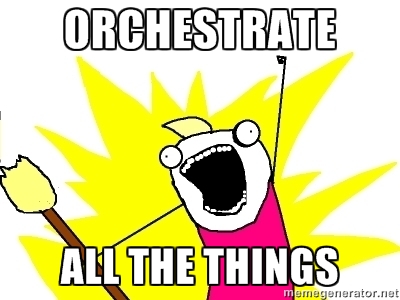 Continue reading “Understanding vRealize Orchestrator Authentication with the FlashArray REST API”
Continue reading “Understanding vRealize Orchestrator Authentication with the FlashArray REST API”
Somewhat surprisingly I have been getting a fair amount of questions in the past few months concerning VMware vCenter Site Recovery Manager and Raw Device Mappings (RDMs) and using this with Pure Storage. Common question is whether or not we support this (we do) but more commonly it is about how it works. There is a bit of a misunderstanding on how they differ or do not differ from VMFS management in SRM. So figured I would put a post out to explain this. Old topic somewhat, but worth reviewing for those newer SRM customers. Plus, I haven’t found a whole lot of on-point posts anywhere, so why not?
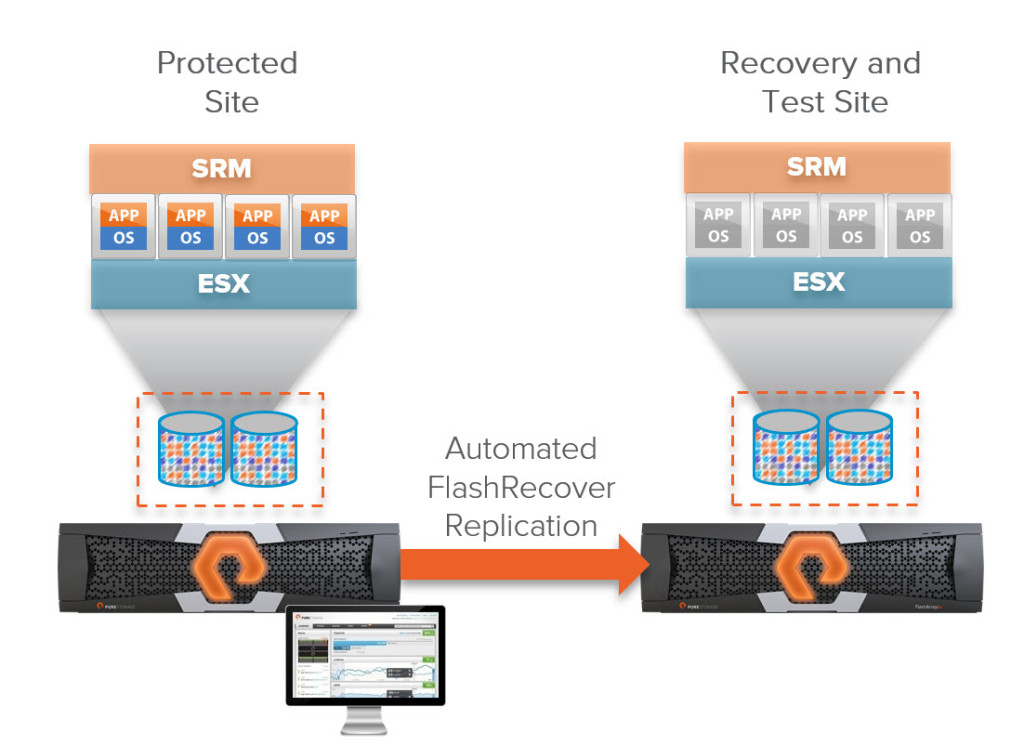 Continue reading “Site Recovery Manager and Raw Device Mappings (RDMs)”
Continue reading “Site Recovery Manager and Raw Device Mappings (RDMs)”
Quick update. I have posted a new version of the PowerCLI UNMAP script that I maintain. I usually do not put a blog post out every time I update it, but there were enough changes here I think it was worth a quick note.
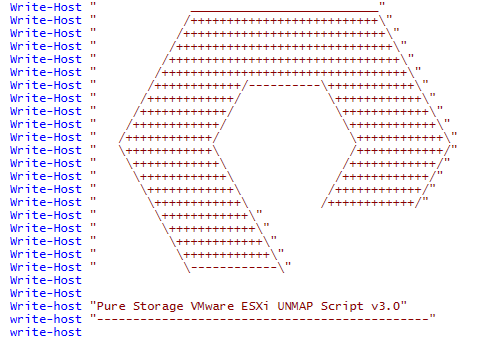 Continue reading “Updated UNMAP PowerCLI Script for FlashArrays”
Continue reading “Updated UNMAP PowerCLI Script for FlashArrays”